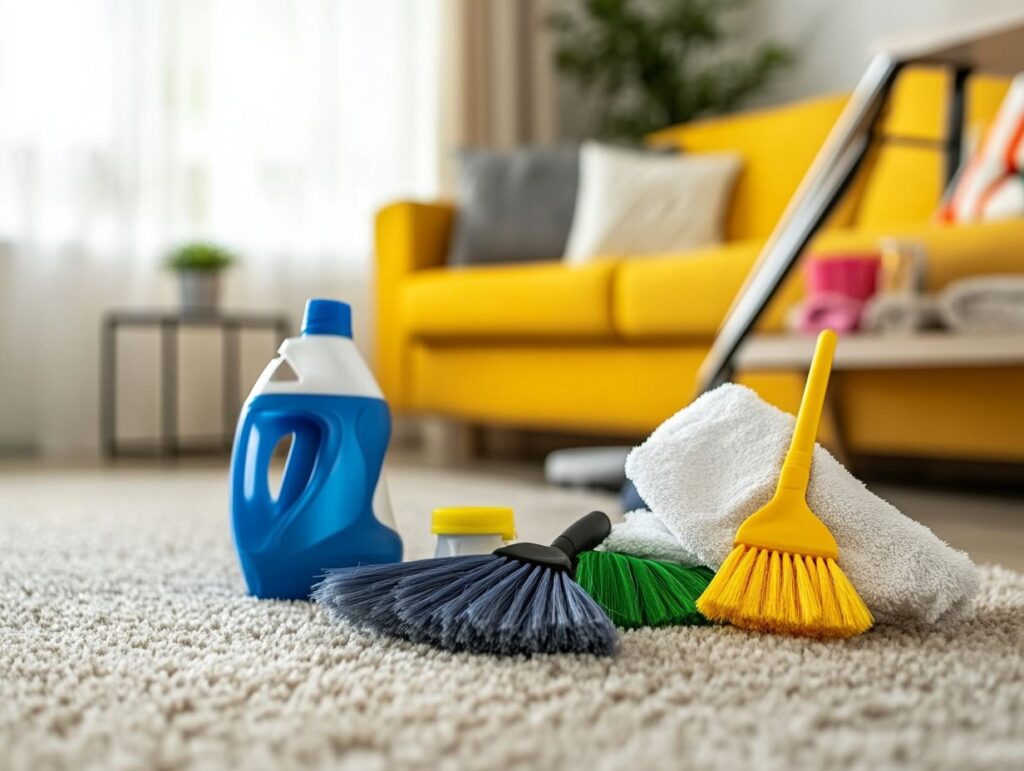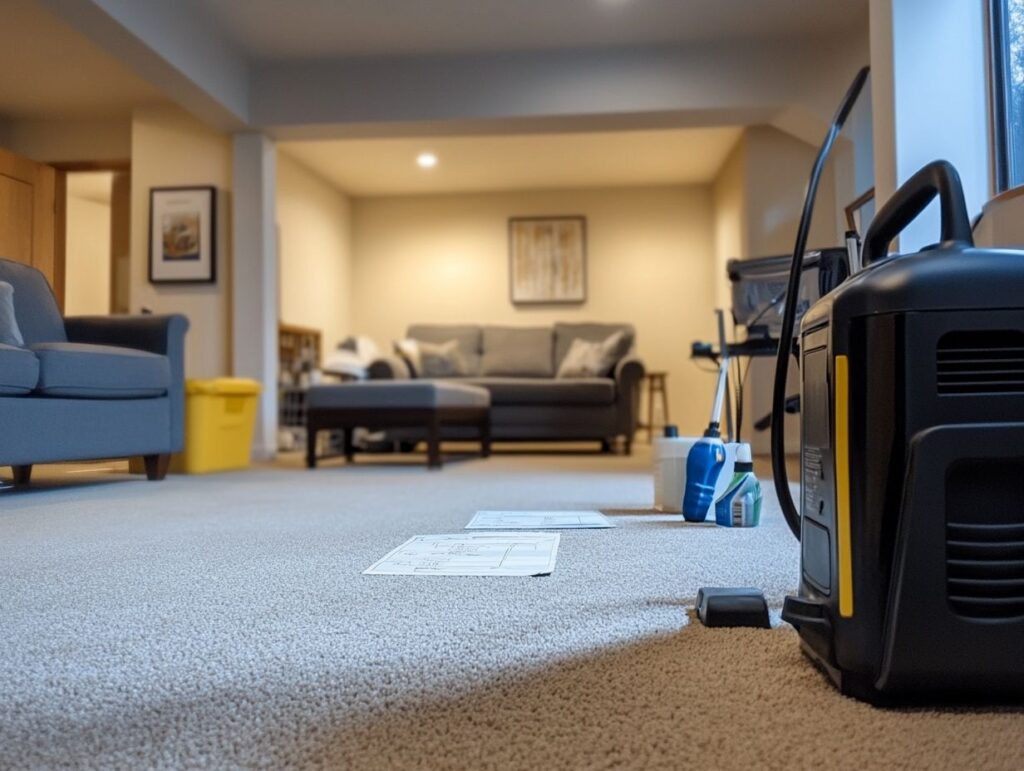Cleanliness in rental properties is crucial for both tenants and landlords, impacting comfort, satisfaction, and property value. A well-maintained space fosters a positive living environment, while neglected cleanliness can lead to disputes and costly repairs.
Today, we explore the expectations placed on tenants, common cleaning challenges, and effective maintenance tips. Whether you’re a landlord seeking to uphold property standards or a tenant keen on meeting lease responsibilities, understanding the importance of cleanliness will help ensure smooth rental experiences for everyone involved.

Importance of Cleanliness in Rental Properties
Cleanliness in rental properties is a significant issue that impacts your satisfaction as a tenant, what landlords expect, and the property’s overall condition. It is crucial to maintain the property’s value and ensure it meets hygiene standards, especially when it comes time for property viewings.
For you as a tenant, understanding why cleanliness matters can directly affect your security deposit return and overall experience while living there. Conversely, when landlords enforce cleanliness, they create a more enjoyable rental environment, leading to happier tenants and better retention.
So, ultimately, keeping things clean is a shared responsibility between you and your landlord.
Why a Clean Property is Essential for Tenants and Landlords
Keeping a clean property is extremely important for both you as a tenant and the landlord. It boosts tenant satisfaction, improves property turnover, and meets the landlord’s expectations for maintenance and presentation. When the place is clean, you feel valued, which makes you more likely to take care of the space. This minimizes the risk of damage and helps ensure you get your security deposit back when your tenancy is up.
Landlords certainly appreciate positive feedback from tenants, as it can lead to longer tenancy agreements and fewer vacant units. Regular cleaning services keep the property in excellent condition and make inspections run more smoothly. A proactive approach to cleanliness helps tackle potential issues before they become costly repairs or disputes.
A well-maintained environment is also attractive to potential tenants, creating a win-win scenario. By prioritising cleanliness, everyone can enjoy a more harmonious living experience while maintaining the integrity of the rental property.
Expectations for Tenants
Understanding what is expected of you as a tenant is fundamental. Your tenancy agreement usually sets this all out, detailing your responsibilities regarding keeping the property clean and well-maintained.
This isn’t just about the usual cleaning tasks; it also means maintaining the property’s condition to meet hygiene standards and look presentable for inspections and property viewings.
Responsibilities Outlined in the Lease Agreement
The tenancy agreement is your go-to document that lays out what you need to do as a tenant, including keeping things clean and following the specific cleaning protocols during your time on the property. It’s crucial to understand that if you overlook these responsibilities during your tenancy, you may run into problems when it’s time to move out. Failing to maintain the property or address any necessary repairs could lead to disputes over your security deposit. Your landlord might deduct costs to cover damage or wear and tear that you were responsible for. In some cases, you could even be faced with formal damage assessments, which might end up costing more than you expected. Taking care of things now helps avoid these potential issues and ensures a smoother end to your tenancy.
These cleaning obligations are closely tied to the overall property management strategy, helping to ensure the property stays in top condition for current and future tenants. This means you must stick to detailed cleaning contracts that outline how to maintain the communal areas and your flat.
Before you move out, a thorough final inspection typically takes place to check the property’s condition and determine if any deductions from your security deposit are necessary. By taking your cleaning responsibilities seriously, you protect your financial interests and contribute to keeping the property well-maintained and valuable for everyone in the future.

Common Cleaning Issues and How to Address Them
If cleaning practices aren’t standard, you might encounter common cleaning issues in rental properties. This can lead to stains, damage, and even disputes over tenant rights and responsibilities.
Addressing these issues before they become a problem is critical to maintaining a positive relationship with your landlord. It also helps ensure a smooth moving-out process when your tenancy ends.
Dealing with Stains and Damage
Dealing with stains and damage in your rental property means you must spring into action quickly and grab the right cleaning supplies to prevent problems from worsening and ensure the place stays clean. It would help if you were proactive about any issues and communicated clearly with your landlord about repairs and cleaning strategies.
This timely communication is critical because it helps keep your living space pleasant and ensures you are meeting the obligations outlined in your tenancy agreement.
The proper methods for the type of stain or damage you face can make a significant difference when cleaning. For example, water-based stains usually respond well to a bit of soap and warm water, while oil-based stains might require specific solvents.
Photographing any damage and recording all communications with property management is also sensible. This will ensure clarity and accountability throughout the process.
Tips for Maintaining a Clean Property
Keeping your property clean is crucial for both your satisfaction and the overall maintenance of your rental space. Having a regular cleaning checklist helps you manage your cleaning responsibilities more effectively.
Adhering to a structured cleaning schedule and using the appropriate cleaning tools can ensure that your living environment remains in top condition throughout your tenancy.
Regular Cleaning Checklist
Having a regular cleaning checklist is a game changer for tenants like you. It helps you stay organised and consistently tackle essential tasks like dusting, vacuuming, and deep cleaning. This little routine not only keeps your place looking spick and span but also helps prevent any disputes over the security deposit when it’s time to move out.
By setting up a structured cleaning schedule, you can methodically cover all the key areas in your home, such as the kitchen, bathroom, and living spaces.
For example, your typical checklist might look something like this:
- Wiping down worktops,
- Scrubbing sinks and toilets in the bathroom,
- Make sure all living areas are dust-free and clutter-free.
This creates a healthier living environment and makes providing feedback on maintenance requests easier. You can resolve things quickly and enjoy a more pleasant overall rental experience.
Handling End-of-Tenancy Cleaning
In terms of handling end-of-tenancy cleaning, it is a crucial step in your moving-out process. A thorough cleaning can make a difference in how much of your deposit you get back and the overall impression of the property during the final inspection.
You will want to ensure that every corner of your rental meets those cleanliness expectations to avoid any disputes with your landlord over damage assessments.
Steps to Ensure a Thorough Clean
To ensure you leave a thorough clean at the end of your tenancy, it’s crucial to follow a solid cleaning strategy covering every nook and cranny of the property, including appliances, carpets, and outdoor areas. This attention to detail will impress your landlord and make for a smoother final inspection.
Creating a detailed cleaning checklist template is a smart move to keep your tasks organised. Start with the kitchen—give those appliances a deep clean, especially the oven, fridge, and microwave, to get them back in shape.
Next, tackle the bathrooms, paying close attention to the tiles, sinks, and fixtures to ensure hygienic conditions.
Remember the communal areas: dust off those light fittings, vacuum the carpets, and wipe down surfaces. By organising your cleaning efforts and tackling these tasks diligently, you can make the process easier, reduce stress, and leave a positive impression that aligns perfectly with landlord tips for end-of-tenancy cleaning. Also, do not overlook often-neglected spots like the fireplace, for example.
Dealing with Disputes Over Cleaning
Disputes over cleaning can be a real headache for tenants and landlords, but effective communication can make a difference. Understanding what your landlord expects can help you resolve these issues without fuss.
Using feedback forms and keeping a record of your cleaning processes can also help prevent misunderstandings when it’s time to move out.
Mediating Between Tenants and Landlords
Mediating cleaning disputes between tenants and landlords means understanding tenant rights and landlord expectations to find common ground. Establishing clear cleaning protocols and keeping the lines of communication open helps both sides navigate disagreements effectively, making for a more respectful rental relationship.
To make the mediation process smoother, both parties must come to the table ready to listen and compromise.
For tenants, practical tips include:
- Documenting any property inspection reports
- Communicating their cleaning obligations
On the other hand, landlords should be upfront about their cleanliness expectations. This proactive communication can go a long way in preventing misunderstandings.
Regular check-ins can be a great way to maintain that ongoing dialogue and nip disputes in the bud before they escalate. Ultimately, the secret to effective mediation is recognising that tenants and landlords have valid viewpoints, which can lead to solutions that satisfy everyone.